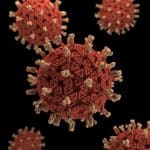Determining the right dosage of probiotics for your Sphynx cat isn’t always a walk in the park. As responsible pet owners, you want to ensure that your feline friend enjoys optimal health, and probiotics come in handy in keeping your cat’s gut health in check. They supplement the gut with beneficial bacteria that aid in digestion and help in preventing gastrointestinal issues. However, the key to reaping these benefits lies in the correct dosage. A wrong probiotic dosage, either an overdose or an underdose, will not yield the desired health results. This article brings you a step-by-step guide on how to accurately determine the correct dosage of probiotics for your Sphynx cat.
Understanding the Role of Probiotics in a Cat’s Health
Before delving into the specifics of probiotic dosage, it’s essential to understand the role these supplements play in your cat’s health. Probiotics are typically live bacteria and yeasts that are beneficial to the health of your cat, especially their digestive system. These microorganisms help in maintaining a healthy balance of gut bacteria, thus preventing digestive issues such as diarrhea.
Dans le meme genre : How to Recognize the Signs of Anxiety in Dogs and How to Help Them Relax?
Probiotics also play a significant role in enhancing the immune system of your cat. A healthy gut contributes to a robust immune system, enabling your cat to ward off various diseases. Probiotics such as Fortiflora are highly recommended by vets because they are rich in beneficial bacteria that help in boosting the cat’s health.
Consulting Your Vet
The first step in determining the correct probiotic dosage for your cat is consulting your vet. Your vet is best placed to make an accurate assessment based on the cat’s age, weight, overall health, and specific dietary needs.
Cela peut vous intéresser : What Are the Best Fish Species to Keep with Goldfish in a Coldwater Aquarium?
The vet will examine your cat and may perform several diagnostic tests to ascertain the state of its health. They may also review your cat’s diet and the type of food it consumes regularly. All these factors are crucial in determining the probiotic dosage that your cat requires.
The vet will also guide you on the best probiotics to administer to your cat. There’s a wide array of probiotics in the market, and choosing the right one for your cat can be quite a daunting task. Your vet will recommend the best probiotic supplement that suits your cat’s needs.
Understanding the Probiotic’s Instructions
Once your vet recommends a specific probiotic supplement, the next step is to understand the instructions provided. This is crucial because different probiotics come with varying dosage instructions based on the concentration of the beneficial bacteria in the supplement.
For instance, Fortiflora, a popular probiotic for cats, comes with specific instructions on the packaging. It’s crucial to follow these instructions to the letter to ensure that your cat gains the maximum benefits from the probiotics.
Take note of the recommended daily dosage and observe any specific instructions regarding the administration of the probiotics. Some may need to be mixed with water or food, while others can be administered directly.
Monitoring Your Cat’s Response to the Probiotics
Lastly, you need to monitor your cat’s response to the probiotics. This is an essential step in determining whether the dosage provided is effective or whether adjustments need to be made.
Observe your cat’s stool. A healthy stool is often an indication of a healthy gut. If your cat previously had diarrhea, and it subsides after administering the probiotics, then the dosage is likely effective.
Also, watch out for any adverse reactions such as vomiting or loss of appetite. If your cat exhibits such symptoms, it’s advisable to consult your vet immediately. They may recommend an adjustment of the dosage or a change in the type of probiotic supplement.
In conclusion, determining the correct dosage of probiotics for your Sphynx cat is a process that requires consultation with a vet, understanding the probiotic instructions, and monitoring your cat’s response. By following these steps, you’ll ensure that your cat enjoys the full benefits of the probiotics, leading to a healthy, happy feline friend.
The Role of Probiotics in Cat Food
Understanding the role that probiotics play in cat food is a crucial aspect of determining the correct dosage for your Sphynx cat. Pet food companies often add probiotics to their products, both wet food and dry food, to enhance the overall health benefits. Both the Purina Pro Plan and Grain Free brands, for example, are known for incorporating beneficial probiotics into their cat food.
These probiotics help supplement the cat’s diet, providing beneficial bacteria that aid in digestion and build a healthy gut. Specifically, Enterococcus faecium is a commonly used probiotic in cat food, known for its exceptional health benefits. It helps in maintaining the balance of gut microbiome, thus enhancing digestion and boosting the immune system of your cat.
However, providing probiotics through cat food alone isn’t always enough. This is because the amount of probiotic in the cat food may not be sufficient to meet the cat’s daily probiotic needs. Therefore, supplementing the cat’s diet with a probiotic supplement is necessary to ensure that your cat enjoys optimal health.
Also, remember that while shopping for probiotics-enriched cat food, always check the packaging for information about the concentration of probiotics. Probiotic-rich food should contain at least one billion cfu (colony-forming units) of probiotics per serving. The higher the cfu, the more beneficial the cat food is likely to be.
The Importance of Regular Monitoring and Adjustment
Just like any other health supplement, the effectiveness of probiotics in your cat isn’t set in stone. Regular monitoring and potential dosage adjustments are essential to ensure the probiotics are providing the desired health benefits.
The initial dosage recommended by your vet is usually an estimate, based on factors like your cat’s age, weight, and overall health. However, each cat is unique, and what works for one may not work for another. This is why monitoring your cat’s reaction to the probiotics is paramount.
Messages points to monitor include your cat’s stool consistency, appetite, energy levels, and overall behavior. If your cat’s health improves, the current dosage is likely effective. However, if your cat doesn’t show any improvement or exhibits adverse reactions like vomiting or loss of appetite, then you might need to adjust the dosage.
While making adjustments, always consult your vet. They will guide you on the right course of action, be it increasing or reducing the dosage, or even switching to another probiotic supplement. Remember, it could take some time before you find the perfect balance that works for your cat. Patience and consistency are key in this process.
Conclusion
In essence, determining the correct dosage of probiotics for your Sphynx cat entails a comprehensive understanding of the role of these beneficial bacteria, both in cat food and as supplements. It requires a careful consultation with your vet, a clear comprehension of the instructions on the probiotic supplement, and a close monitor of your cat’s response to the probiotics. By diligently following these guidelines, you can ensure your feline friend maintains a healthy gut and a robust immune system. In the end, the result is a happy, healthy cat – the ultimate desire of every pet owner.











